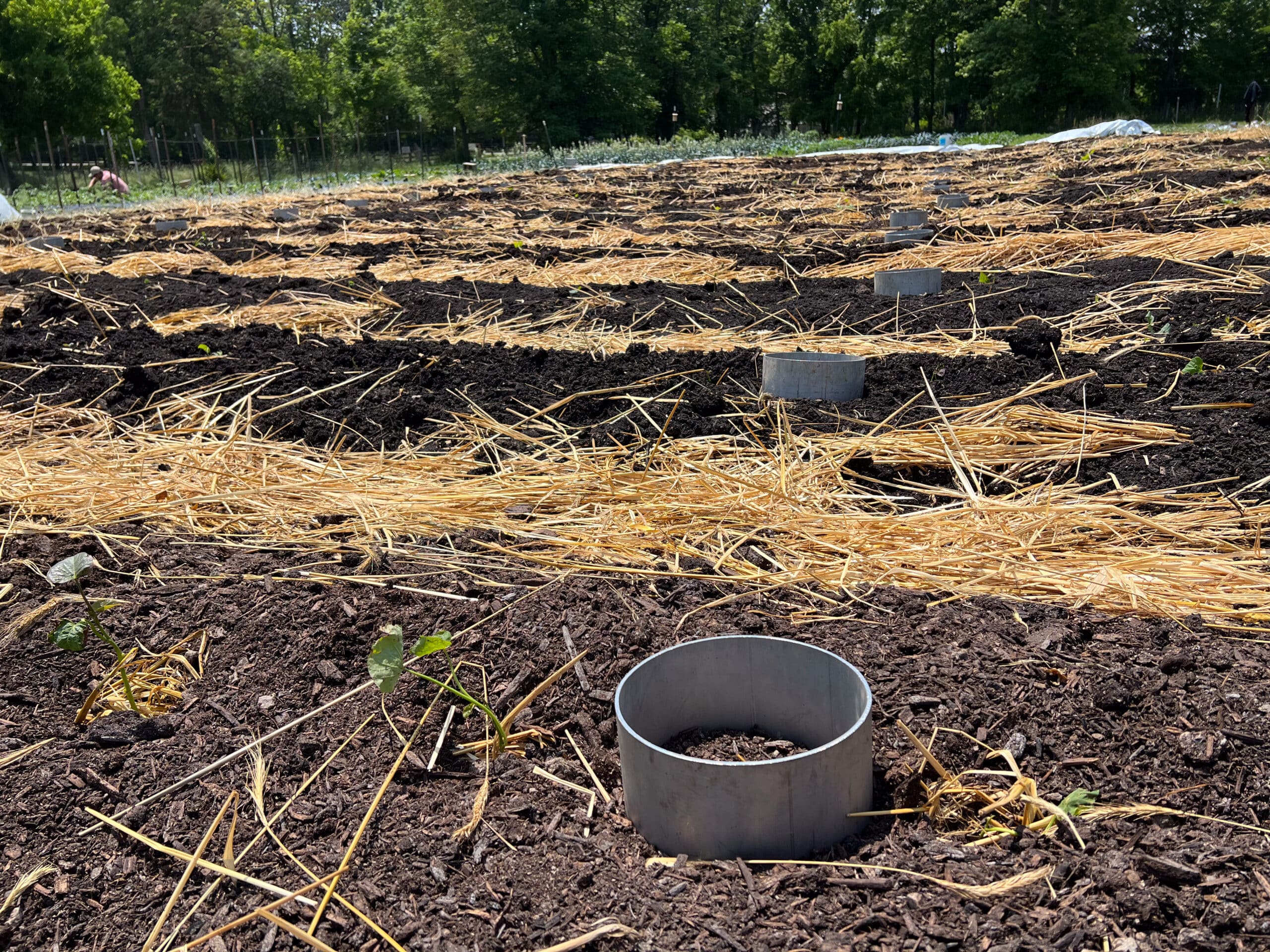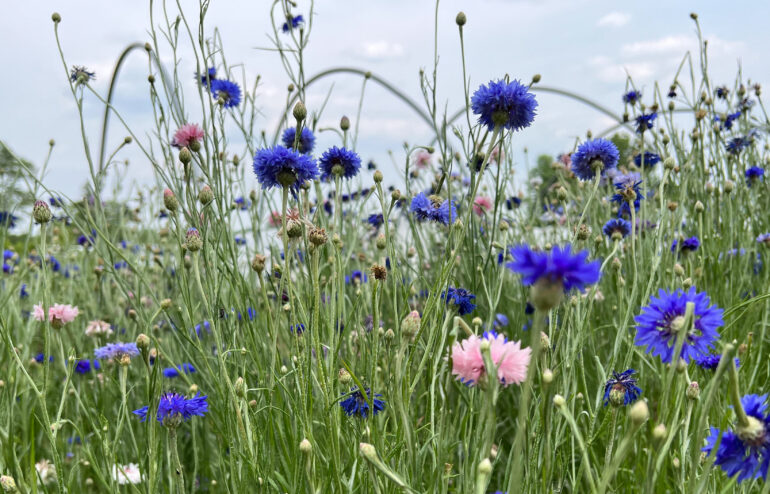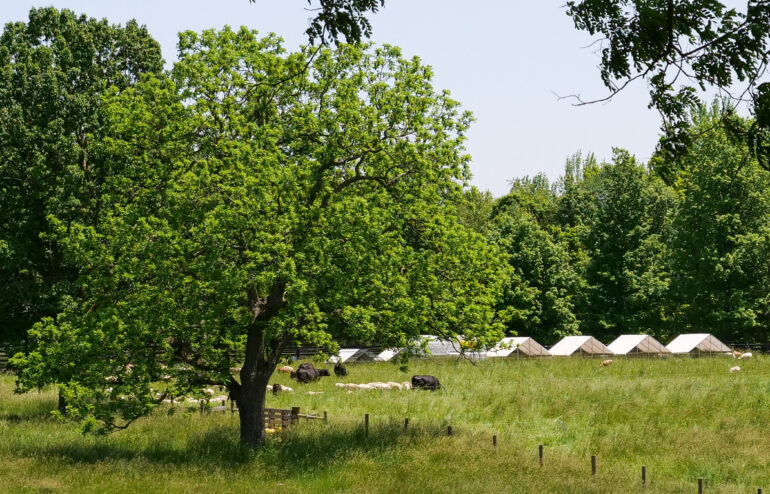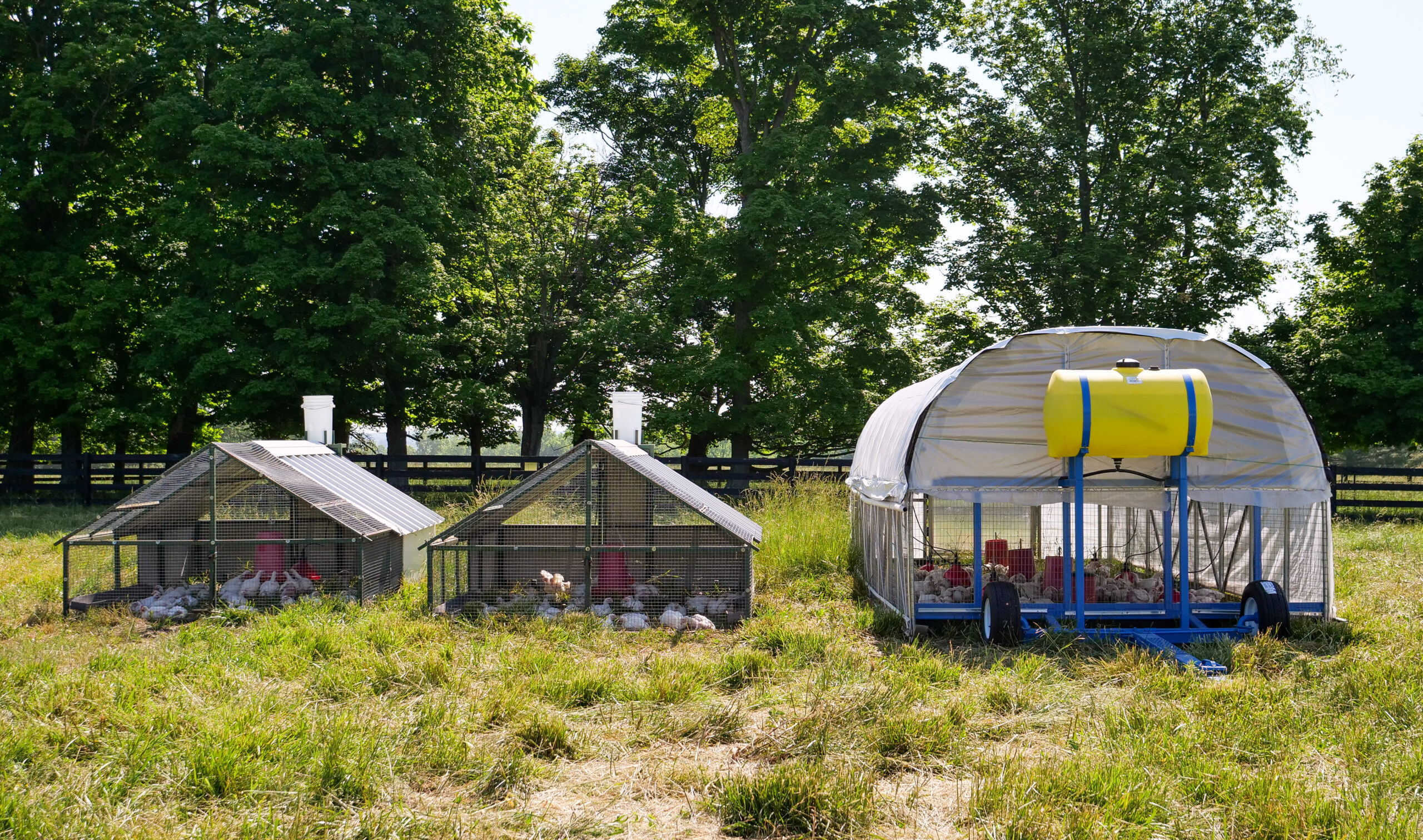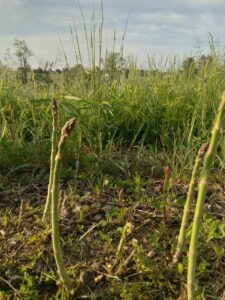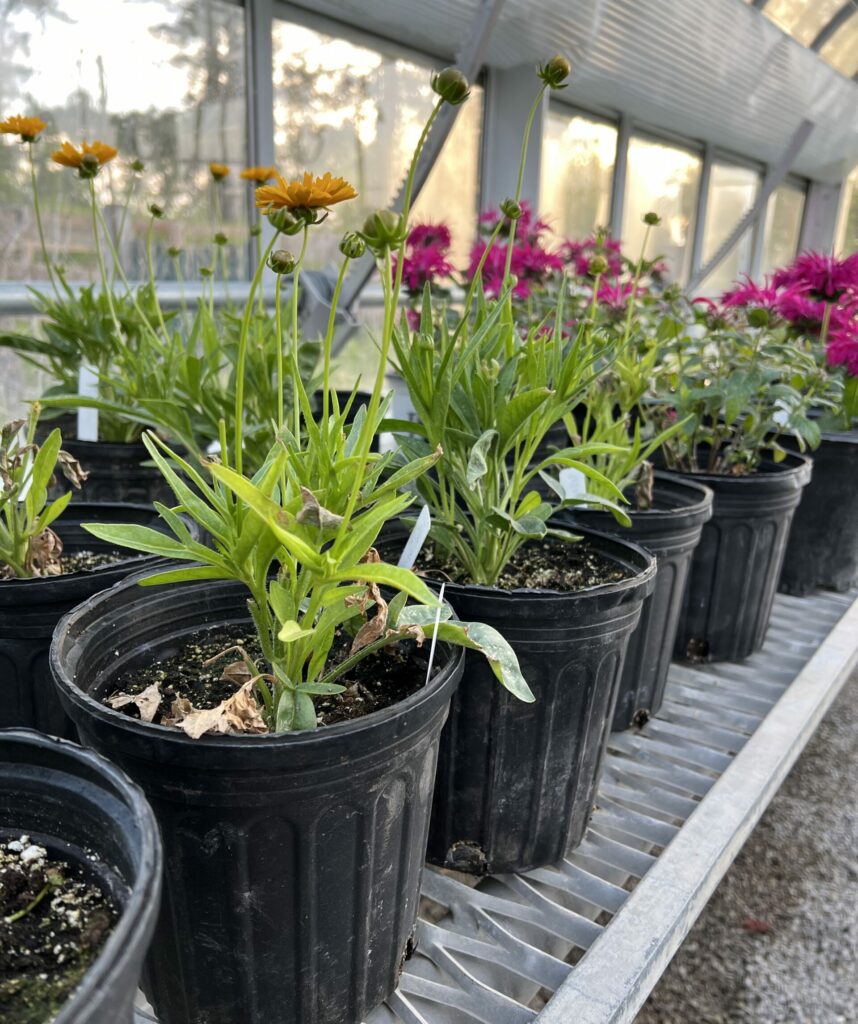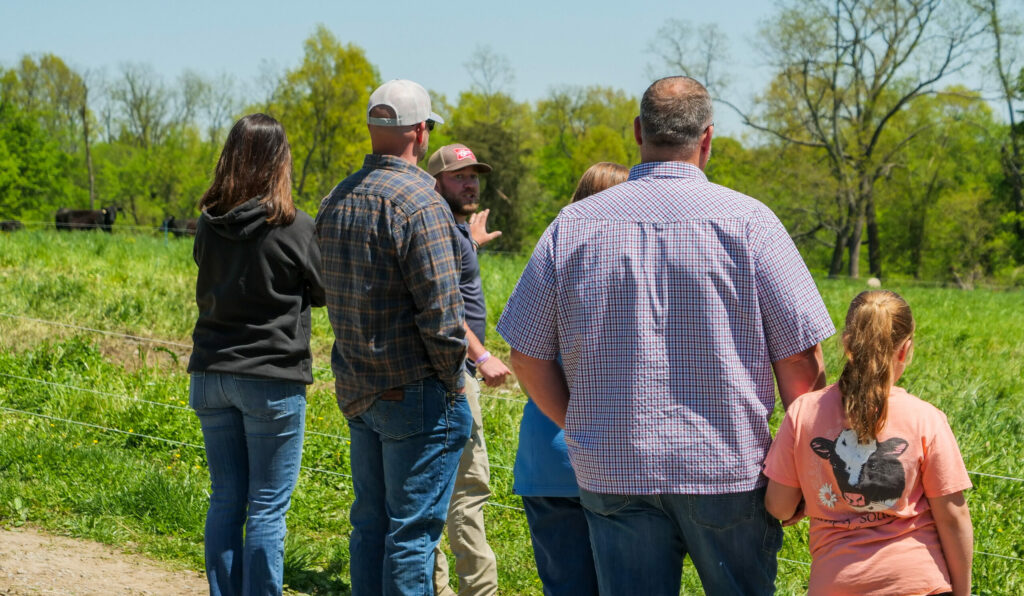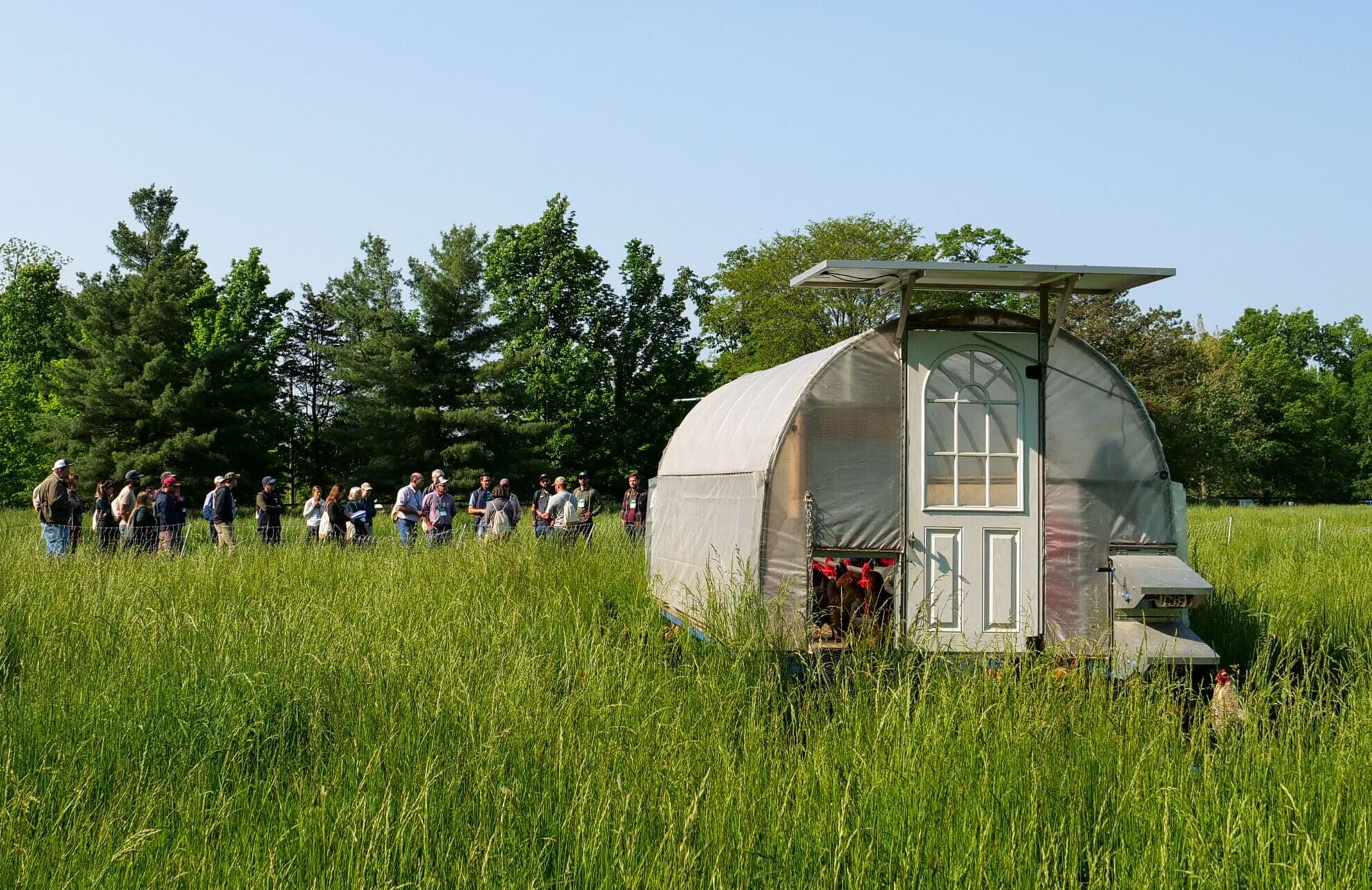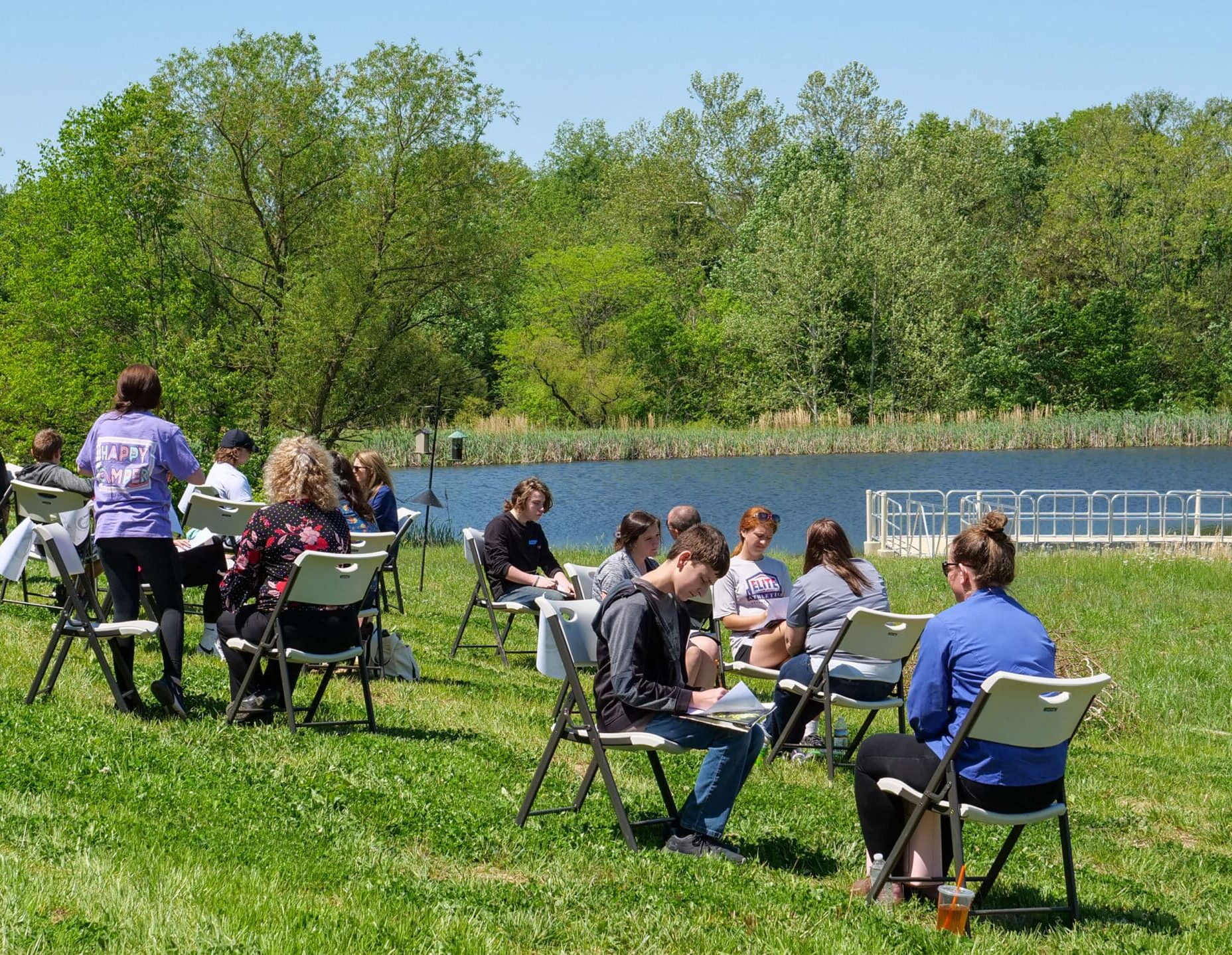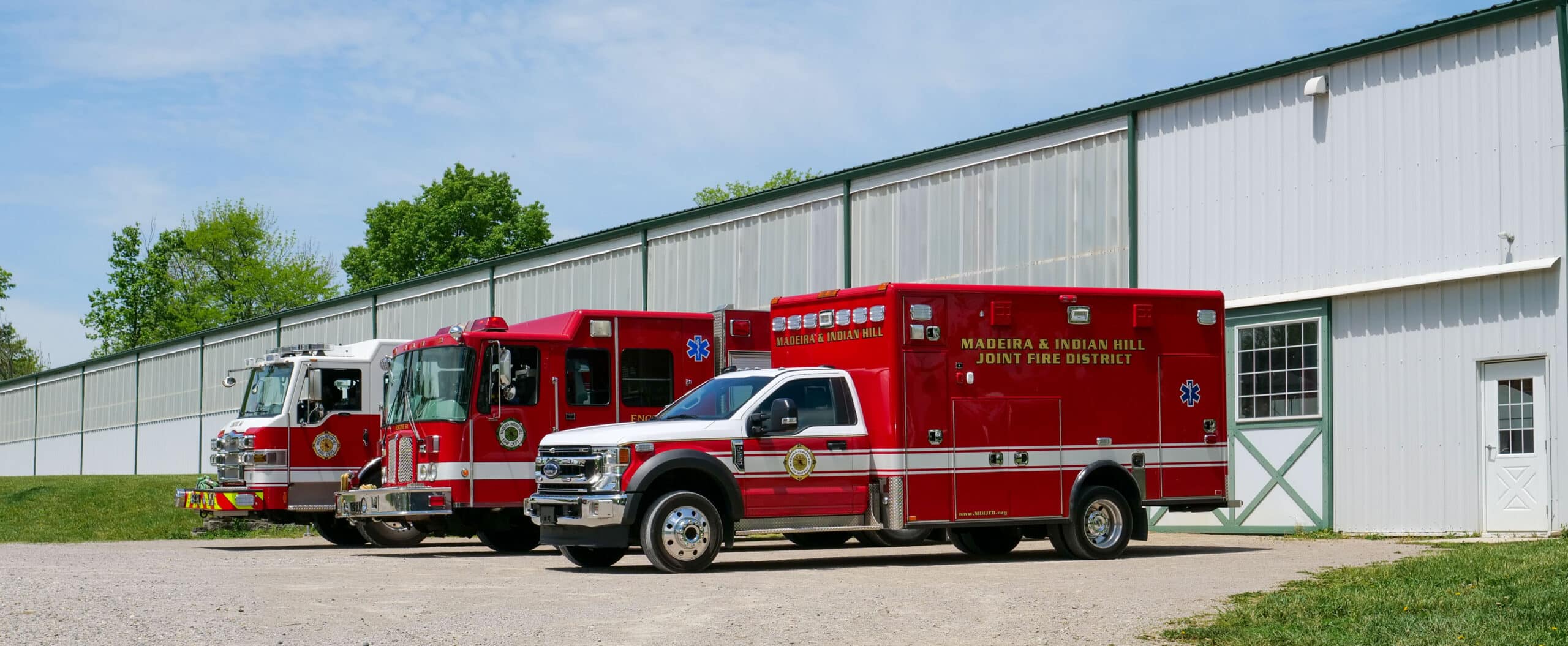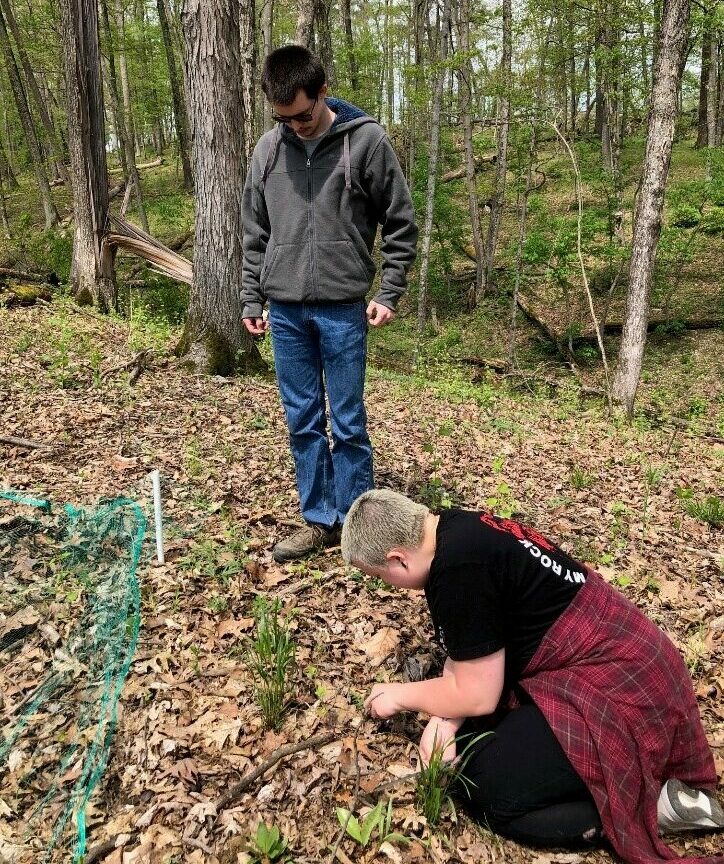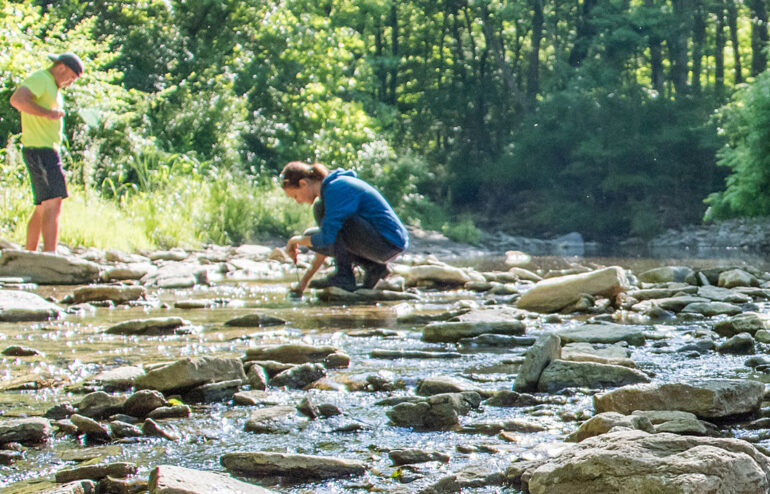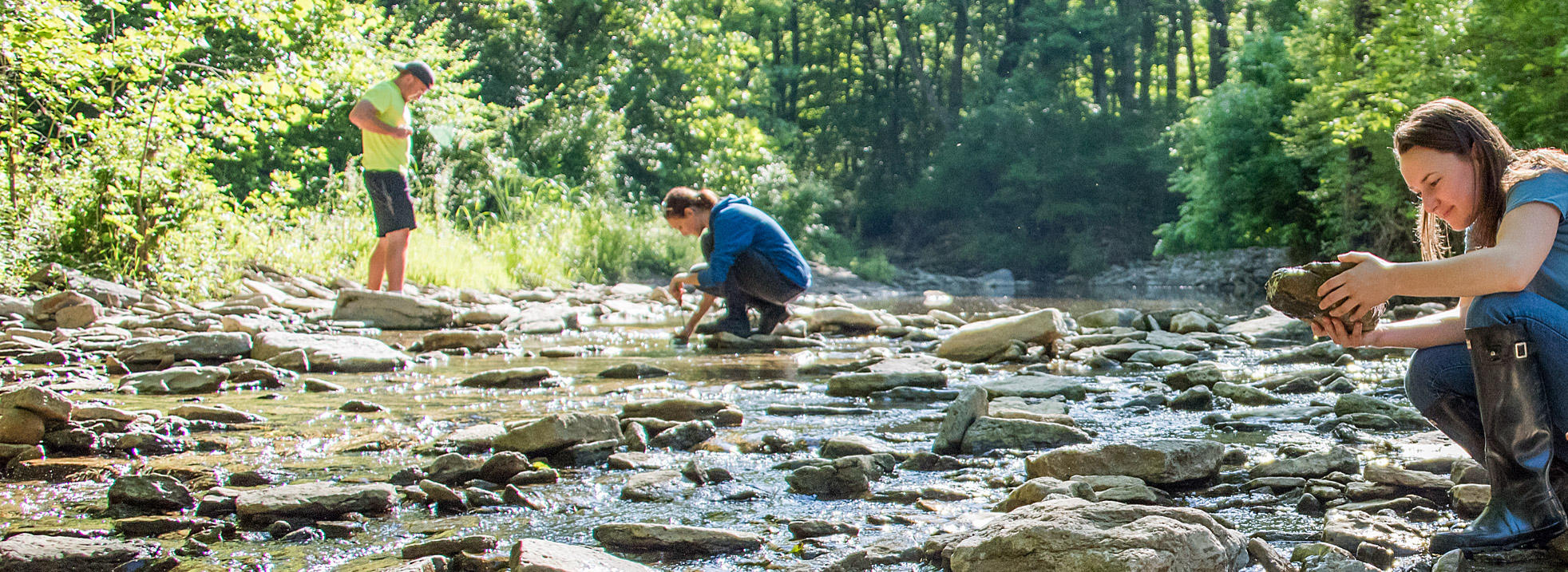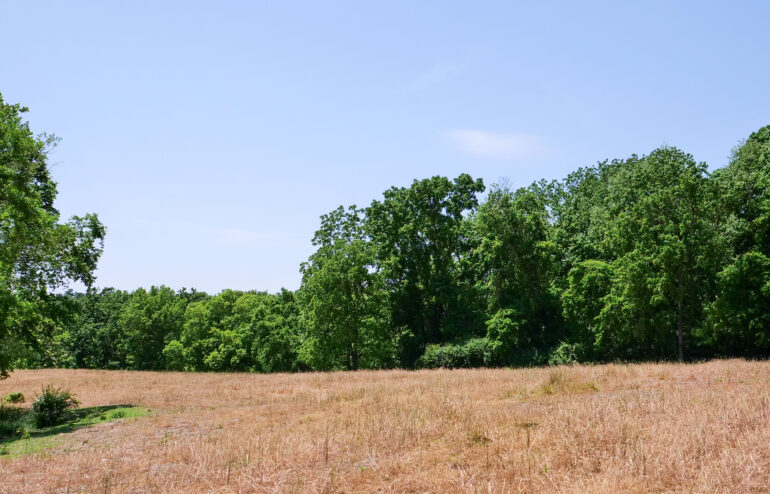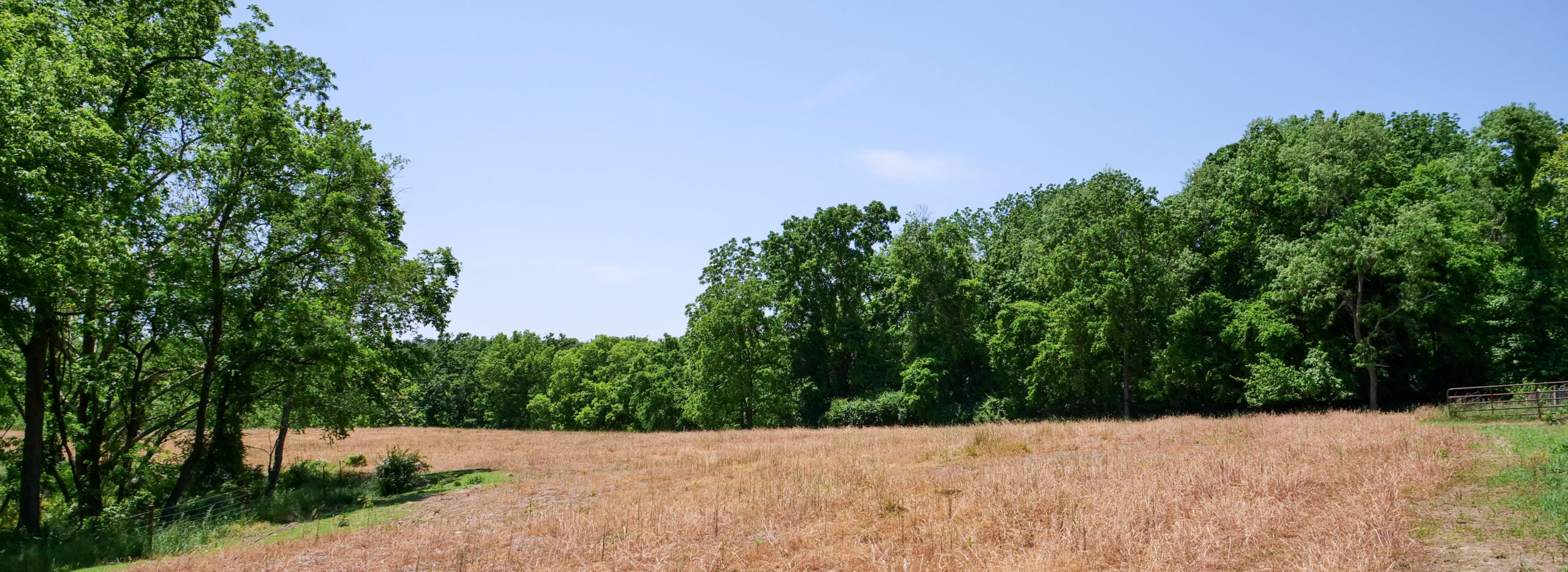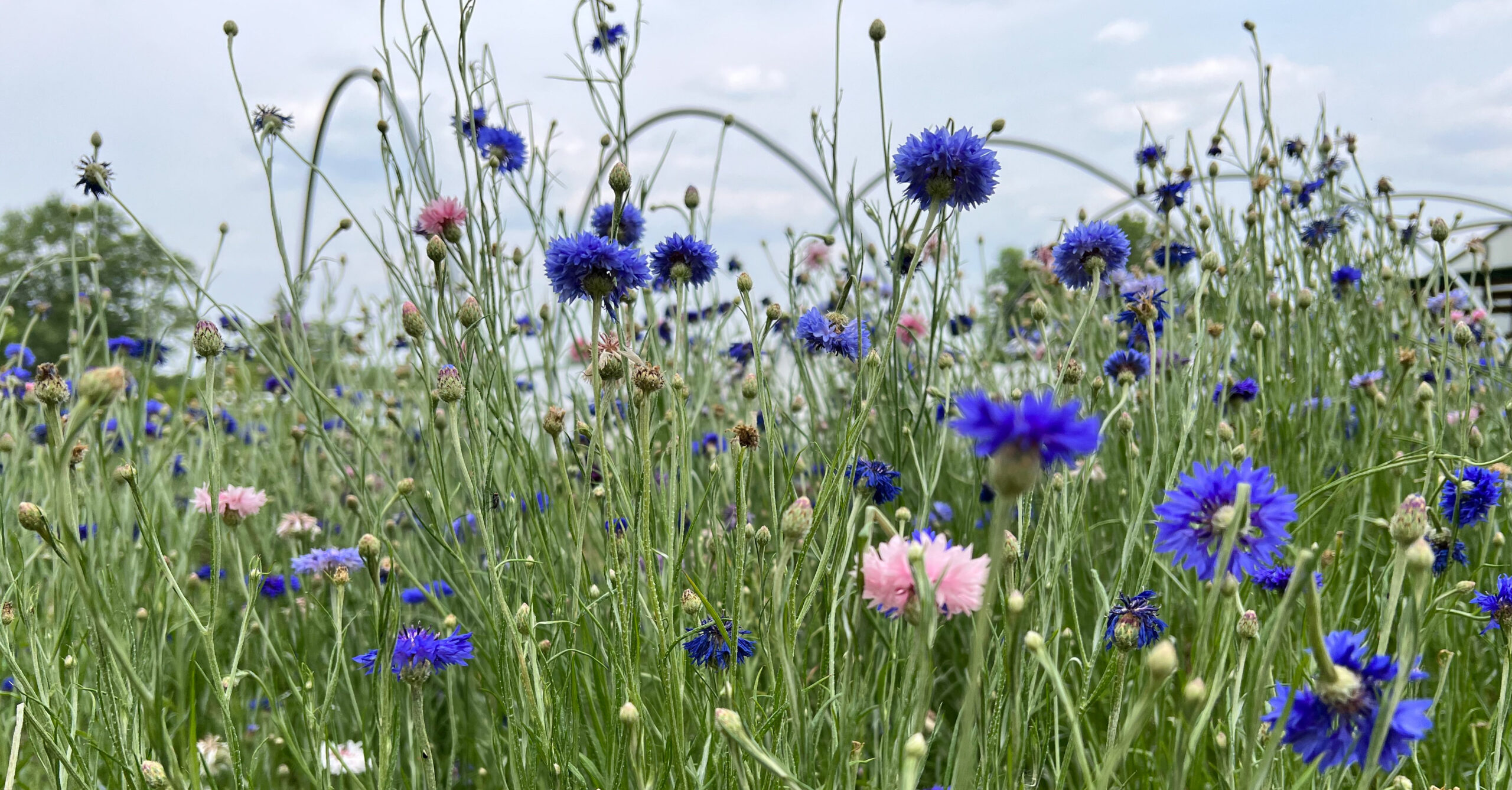
Around Greenacres - Summer 2023
Summer Turkey Production
June marked a first at Greenacres with turkeys being added to our pastures before July. They have enriched our summer programming, allowing our educators to integrate them into their curriculum. The experience of witnessing a working farm and learning about the turkeys’ impact on soil health has been great for visitors. Early turkeys also allow us to expand our Thanksgiving offerings to include turkey breasts since we can work with our processors earlier, allowing them time to process this batch before the holiday rush.
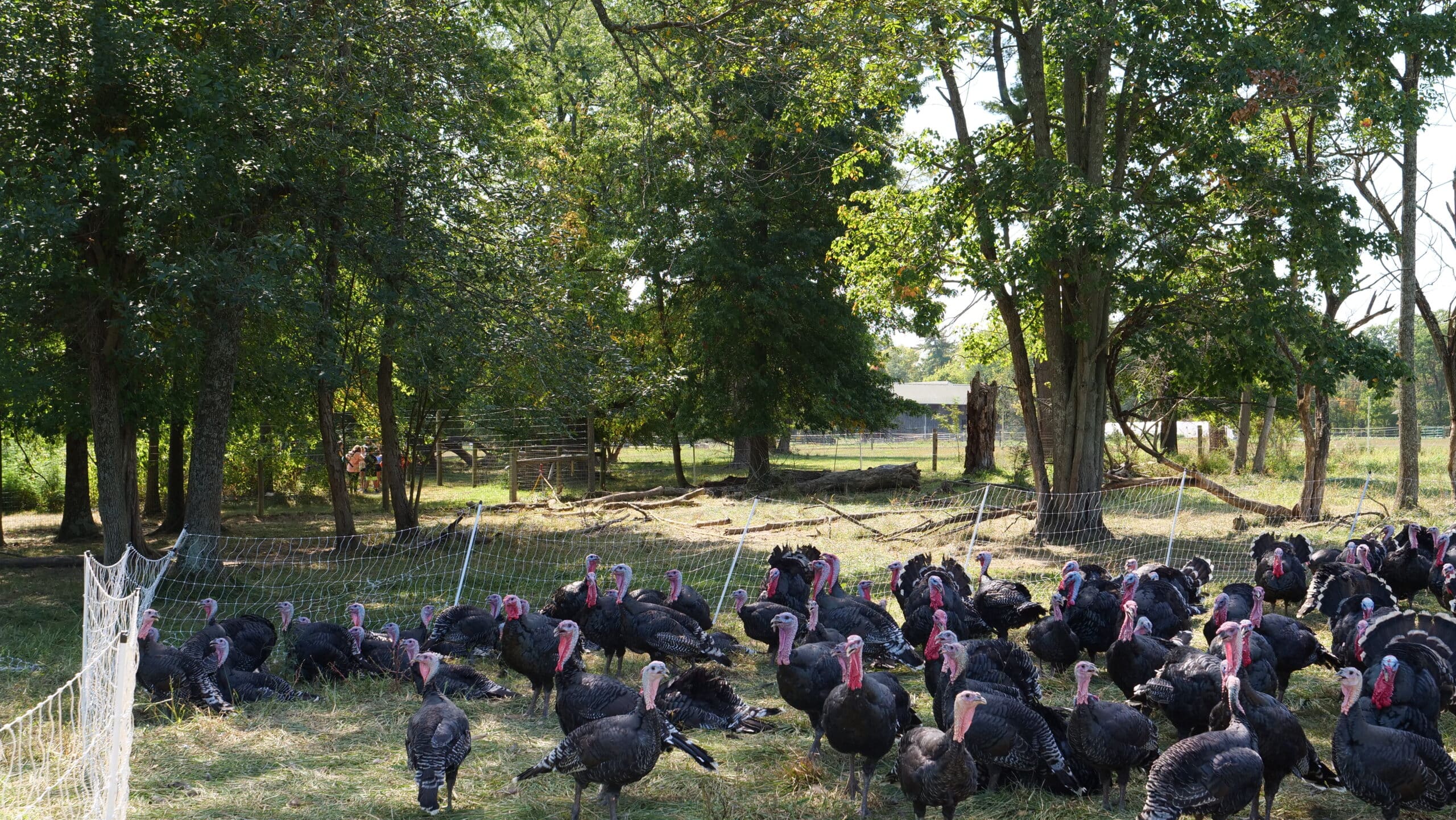
“It’s been great having this batch of turkeys out on pasture earlier than usual. Thanks to the nutritious forage they’re getting in the field, they’ve been growing fast.”
-Chris Glassmeyer, Livestock Coordinator
Garden Apprentice Plots
Every spring, our garden team welcomes two apprentices for a two-year immersive program. During the first year, apprentices focus on learning our garden production methods. Once they have developed these skills, they are encouraged to develop their own projects, be it cut flowers, vegetables, or high-yield crops, and are given a dedicated plot to experiment on. While we support and continue their education, we allow room for self-driven learning through trial-and-error.
This year, second-year apprentices Sam Placke and Abby McGuire have been applying their learned skills. Sam has delved into vegetable production, exploring unique edible plants, while Abby is expanding her horizons in cut flower production. Their dedication is blossoming into success, evident from Abby’s floral creations and Sam’s vegetables enriching our Farmstore’s offerings.
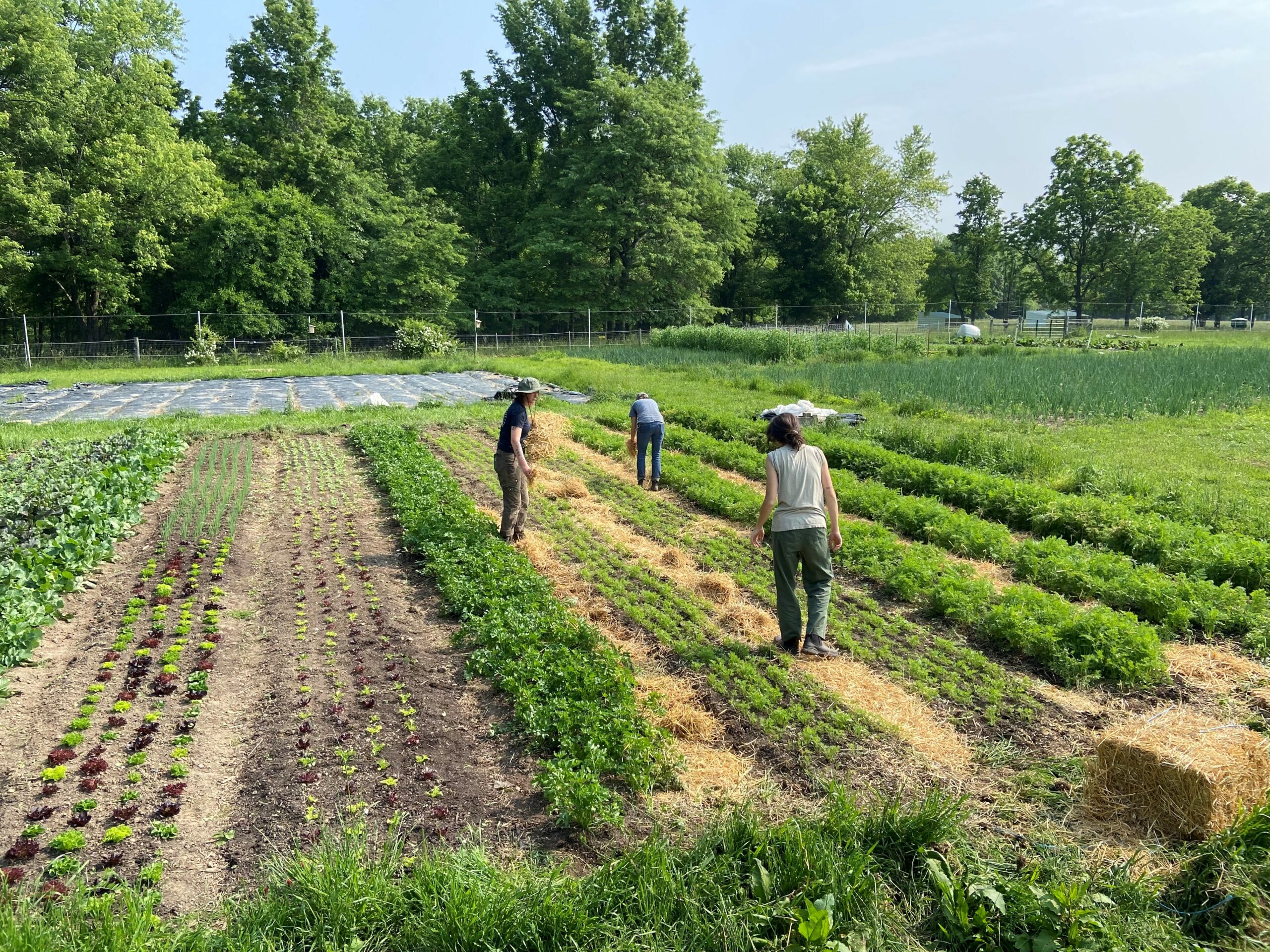
Equine Lessons, Pony Club, & First Responders
The equine department had an eventful summer, hosting diverse camps, Pony Club events, and Exploring With Grace programs. Both seasoned and new riders benefited from weekday camps, honing skills on and off the saddle. At the Pony Club Rally, one of our riders, alongside school horse Cary, clinched a top ten spot in a field of over 20 riders! We also facilitated four Exploring With Grace sessions, where students learned horse grooming, leading, and enjoyed a bareback obstacle course ride. Beyond these, Greenacres Equine Center held nine First Responder trainings for local emergency personnel, covering equine behavior and handling for equine emergencies. As we reminisce on the enriching summer of 2023, anticipation builds for the 2024 season! Our center, catering to riders aged 8-18, focuses on English riding with an emphasis on Eventing. Due to overwhelming demand, our waitlist is momentarily closed as we accommodate existing applicants.
School Horse Spotlight
As an appaloosa, Prim is one of our more unique colored school horses and one of the few mares (female horse) in the barn! She adores being loved on and is often the favorite of students and visitors because of her sweet personality. Prim is an exceptionally brave horse and enjoys schooling over the cross-country fences in our jump field. She and her Pony Club rider went to their first horse trial together this spring and had a blast!
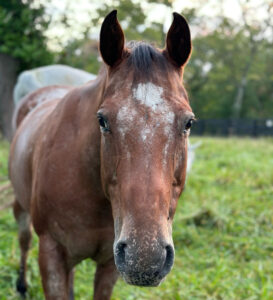
Co-composted Biochar Research Project
Have you ever wondered why fertile soil tends to be darker in color? Soil fertility is largely attributed to soil organic matter, and higher levels of soil organic matter usually correspond to higher water and nutrient holding capacity as well as darker color. Many people think of soil organic matter as primarily coming from soil microbes decomposing biomass and root exudates, but historically a significant portion of soil organic matter in grassland ecosystems came directly from fire—pyrogenic carbon. Some of the most fertile soils in the Midwest experienced repetitive fire in the natural ecology of tallgrass prairie ecosystems, but 3-5% of the total biomass in a prairie fire would burn incompletely and leave a “char” residue on the soil surface. Nutrients released as a result of the fire generated highly palatable forage that was preferentially grazed by bison in a phenomenon known as “pyric herbivory.” In short, repeated applications of pyrogenic carbon and bison manure over hundreds to thousands of years created highly fertile soils that persist to this day, and we are trying to emulate this process in our integrated crop-livestock system known as the Ley Field. However, instead of using fire and herds of bison, we are using compost and a material called “biochar.”
Biochar is a very stable form of carbon that is a useful byproduct of heating biomass to high temperatures in the absence of oxygen, and it is nearly identical in form and function to pyrogenic carbon. Adding biochar at the beginning of the composting process (co-composting) offers mutual benefits to both biochar and compost during composting, and co-composted biochar applications emulate the applications of pyrogenic carbon and bison manure in historic tallgrass prairies. Three types of compost are being assessed in a four-year rotation of vegetables and grazed cover crops: regular compost, compost with woody biochar, and compost with poultry litter biochar. The Research team is collecting data on crop production, crop quality, soil health, and greenhouse gas emissions to compare the various types of compost on a systems level. Ultimately, we will learn if the tallgrass prairie paradigm for generating soil fertility can be adopted in an integrated crop-livestock system to simultaneously improve crop production and soil health.
